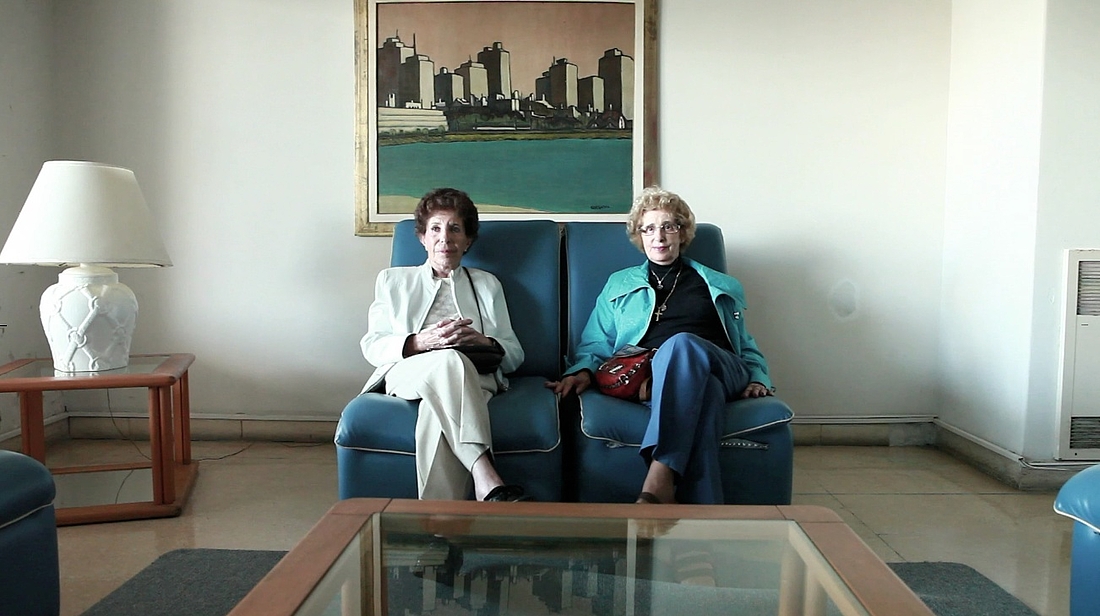Admissions: $10 General Admission / $6 Cinematheque members
Advance tickets here.
Federico Windhausen in person.
Join our Facebook event here
Buenos Aires-based film scholar/curator Federico Windhausen appears in person to present the first of two programs selected from an extensive 8-program series of Latin American experimental film, originally presented at the 2016 International Film Festival Oberhausen.
In the 1960s and 1970s, the New Latin American Cinema endorsed el pueblo as an idea that could be used to mobilize revolutionary sociopolitical transformations. “Films, magazines, radio, and periodicals try to de-politicize el pueblo, to spread skepticism and escapism,” announced Fernando Solanas and Octavio Getino in the first part of their militant classic The Hour of the Furnaces (1968), and some of the most influential and canonical cinema of the era saw itself as engaged in a vital struggle against false consciousness. But in the contemporary scene, long after the region's transitions from authoritarian rule to contested democracies, this widespread and widely-abused ideological rallying cry (Somos el pueblo—“We are the people”) no longer carries the same far-reaching impact or promise. It has been assimilated into a dense web of opposed perspectives, within which neither the “pink tide” of leftist governments, the post-neoliberal center-right, nor grassroots movements (to name only three) have managed to enjoy a privileged and dominant influence on contemporary moving image cultures.
During the past ten years, however, the artists' film in Latin America has deepened and diversified its ties to the social within a heterogeneous cluster of political contexts. Faced with the shifting dynamics of conflicting rhetorical discourses, the most original and innovative work from the region has replaced the polemical and agitative declaration of collective identity with a series of questions, an exploratory project that asks: What is el pueblo? Can the grander constructs that it implies (Latin America, national identity) be illuminated or challenged by first narrowing its scope, so that a more generative point of departure can be the zone of the locality?
"These programs are designed to tease out an intricate set of interrelationships—aesthetic, sociological, ideological, and so on—among works from circumscribed zones of cultural activity both familiar and unknown…." —Federico Windhausen, “El Pueblo: Searching for Contemporary Latin America.”
Program 2: Performing the Portrait
“I'm sorry,” says the estimable Phedra D. Córdoba in Quem tem medo de Cris Negaõ?, “but I need to know what I'll be facing in order to get into character. So that I can get into character, who of course is myself, but still....” What all of the “characters” depicted in the films in this program face is a camera, and that meeting or confrontation is framed in ways that bring the issue of performativity to the fore. When are expressive manifestations of speech, action and gesture simply being captured by the cinema and when does it more actively ascribe to its subjects performative qualities? Whether offering an excerpt of a conversation rife with the apparent codes of class, age and regional identity (Hotel Punta del Este), demonstrating how the willed construction of identity depends upon reciprocal recognition (Filme Para Poeta Cego), or spotlighting a shopkeeper's wares (El guaraches), these films play with the openness of that question.
SCREENING:
Hotel Punta del Este (2015) by Luis Sens (Argentina): I go down to the lobby during a shoot. I see them sitting there. I can't believe it. I ask if they will let me take their picture. I leave the digital camera recording on a tripod while I fake being occupied. I do not get to hear what they say. (Luis Sens)
Quem tem medo de Cris Negaõ? (2012) by René Guerra (Brazil): The life and death of Cris Negaõ, a.k.a. Cristiane Jordaõ, a.k.a. Nego Marcos, according to those who knew her in Saõ Paulo's trans community. “Depending on your point of view / I'm the bad one / Vamp in your novel / The great tyrant. / Everyone in this world / tells the story in their own way.”
Filme Para Poeta Cego (2012) by Gustavo Vinagre (Brazil/Cuba): Glauco Mattoso, a blind, sadomasochistic poet, agrees to participate in a documentary about his own life, but the conditions he imposes hinder the work of the young director.
El guaraches (2012) by Azucena Losana (Mexico/Argentina): "El guaraches" (leather sandals) is the nickname of the owner of this traditional mezcalería and handmade-sandal shop in Cuicatlán, Oaxaca, Mexico. From his collection of handcrafted mezcal bottles made by Oaxacan families, we chose two of the "Porn" collection to go.... (Azucena Losana)
More information on the Feb. 3 screening of El Pueblo Program 1 is available here.
Image above: Hotel Punta del Este (2015) by Luis Sens
Download program notes
